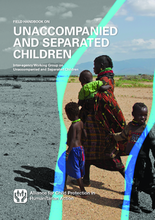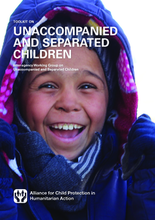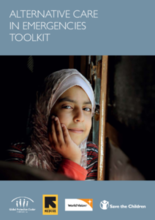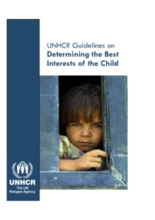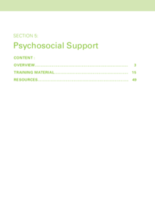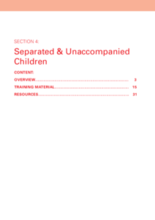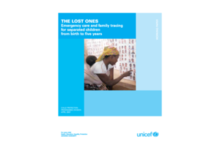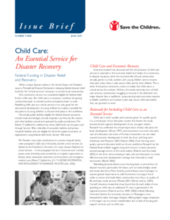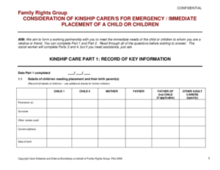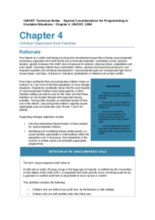This section offers training resources on the prevention of separation, evacuation procedures, tracing, reunification, and monitoring separated children in care arrangements.
Displaying 1 - 10 of 18
This handbook offers comprehensive practical guidance on working with unaccompanied and separated children (UASC) in emergency settings.
The Toolkit on Unaccompanied and Separated Children compiles 56 tools for the use of practitioners working with unaccompanied and separated children (UASC).
The Alternative Care in Emergencies Toolkit is designed to facilitate interagency planning and implementation of alternative care and related services for children separated from or unable to live with their families during and after an emergency.
Provides a formal mechanism to determine the best interests of the child as a mechanism within a child protection system
Contains guidance on how to develop programs to respond to the psychosocial needs of children affected by emergencies. Includes a training schedule, worksheets, and handouts.
Contains an overview of programming to prevent and respond to separated and unaccompanied children, including care arrangements. Includes a training program.
Guidance on how to care for the children under five who are separated from their families in emergencies. Includes chapters on tracing, registering, verification, reunification, and the provision of care to meet developmental needs.
A short paper on the importance of child care provision as a critical service in helping local communities recover post disaster. It gives 4 policy recommendations for protecting and restoring child care infrastructure.
A template for assessing the suitability of kinship caregivers in the short term, and for planning the care of a child in kinship care. There are sections that can be given to potential caregivers to help them prepare for caring for a child.
Practical guidance on responding to the protection and care needs of children separated from their families, with sections on consideration of and arrangements for interim care, family reunion, and alternative long-term placements.

